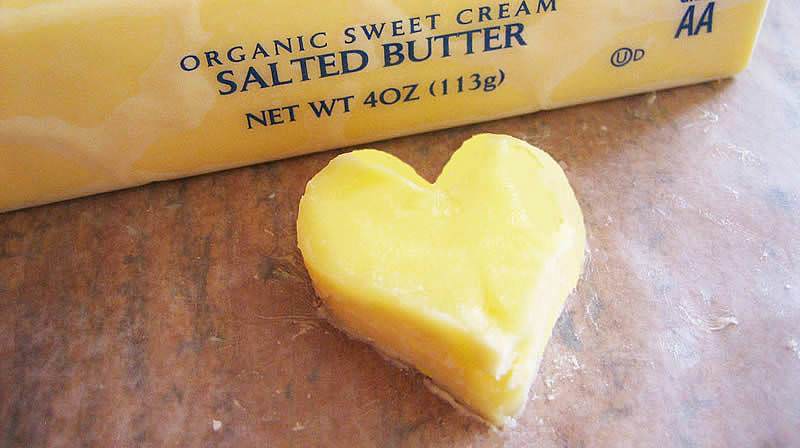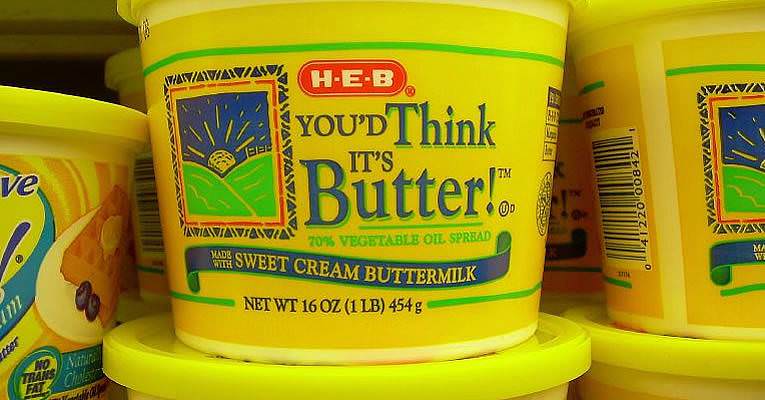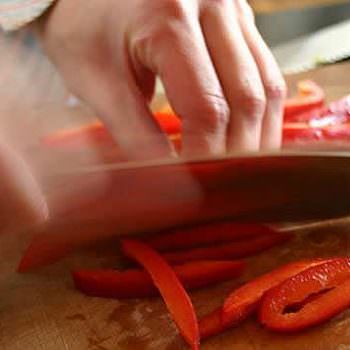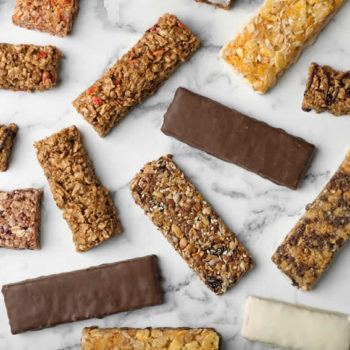Fats: What You Need and What to Avoid

If you lived through the ’80s and ’90s low-fat diet culture, then it might be tough to purposely include extra fat in your diets.
However, healthy fat is vital for our body’s ability to function optimally and can even be a catalyst for fat loss.
I hope for those still afraid of eating fat, this post will help you learn to embrace it as the healthy macronutrient that it is.
How Much Fat Should You Eat per Meal?
About 25-30% of you daily diet should come from the fat macro and this is exactly what the macro diet recommends.
Therefore, 25-30% of the calories of each meal should contain fat. For an average female who eats a 1500 calorie diet, this equates to 50 grams of fat per day or about 17 grams of fat per meal.
Here’s how to figure out which types of fat to eat.
The 3 Main Types of Fat
- Saturated Fat: Dominant in animal fats, peanuts, and palm oils.
- Polyunsaturated Fat: Dominant in plant fats like soybean oil and corn oil.
- Monounsaturated Fat: Dominant in plant fats such as olive oil and avocado.
Which Fats are the Healthiest?
Along with health science’s low-fat diet reversal is its revision of which type of fat is the healthiest. You may remember the day when margarine (mainly hydrogenated polyunsaturated plant oil) was going to save the world from heart disease?
Well… We found out over the last two decades that it was actually a big contributor to heart disease, thus the banning of trans fat-containing hydrogenated oil from fast food and processed foods.1

The dominant fat that shows up in all processed foods is polyunsaturated dominant oils like soybean and corn oil. These oils are very high in omega 6 fatty acid, which throws off your body’s healthy balance of omega 3 and 6 fatty acids leading to inflammation.2
Look at almost any food label and you’ll see these oils listed; from breads to dressings, they are everywhere.
These fats also require a lot of processing to get them extracted from their source plant.
Saturated fats were once demonized, but new research tells us that they can be a healthy part of the diet, but in moderation and in the absence of refined carbs. Animal fats high in omega 3 fatty acids are especially healthy such as salmon and other fatty fish.
Monounsaturated dominant fats probably have the most research behind into the positive health effects they deliver. The Mediterranean Diet is praised because of its health-promoting effects and it includes a lot of olive oil, which is rich in monounsaturated fats.3
Can you eat too much good fat?
You can have too much of a good thing so the important thing is to follow the daily amount of fat guideline above and then make sure that the healthy fats you do eat are in the proper balance.
It turns out that we need a healthy balance of all three types of fat in our diets.
Fats should be consumed in this order: First, consume mostly monounsaturated, then plant saturated, then animal saturated, then omega 6 dominant polyunsaturated fat.
What about Canola Oil?
This is a whole other issue. Although it is high in monounsaturated fat, the way that it is produced, processed, and stored leaves a lot of questions regarding its inclusion in a healthy diet. (For a great article on canola oil, read this.)
A general rule of thumb is to choose oils that require the least amount of steps to get from whole food to oil. These are oils that can be cold-pressed such as olive, flaxseed, and avocado oil.

Cooking With and Eating Healthy Fats
Now that we’re done with all the healthy fat rationale, let’s look at practical ways to get more healthy fat into your diet.
Olive oil, avocado oil, coconut oil, and peanut oil are best. For higher temperature cooking choose coconut oil or peanut oil. (If your oil is smoking, it is at a too high of a temperature for that oil.)
- Add a teaspoon of olive oil or coconut oil when sautéing veggies for stir-fries or omelets.
- Use light olive oil in baking when oil is called for, use coconut oil or butter when shortening is called for.
- Pan fry fish or chicken with a little coconut oil or peanut oil.
- Roast root vegetables like sweet potato and fresh beets with olive oil, salt, and balsamic vinegar.
Generally the best fats to snack on are nuts and avocado. Most nuts contain healthy fat ratios as well as a nice hit of protein to keep you satiated longer.
- Eat a handful of raw almonds, walnuts, raw cashews, or pecans. (A little salt is ok)
- 1 tablespoon of natural peanut butter eaten with a ripe banana is a great, satisfying snack.
- 1/2 an avocado, salt, and celery is a great snack. Spice it up with a little hot sauce.
A little oil makes salads taste great and as it turns out some of the nutrients in your salad can’t be absorbed without that fat.
Unfortunately, it’s almost impossible to find pre-made salad dressings without seeing soybean or canola oil on the label. I have yet to find a mayonnaise that isn’t dominant in soybean or canola, even if they say olive oil on the label.
The Solution? Make your own!
This requires a little effort, but homemade dressings keep well in the fridge for weeks.
- Make your own mayo with olive or avocado oil, lemon juice, salt, and apple cider vinegar. Try this recipe.
- Olive oil, salt, pepper, and balsamic vinegar is a savory, yet simple dressing.
- Make your own ranch dressing using a seasoning packet, greek yogurt, and your homemade mayo. (For blue cheese just omit the seasoning and add blue cheese, celery salt, and black pepper.)
- Eat wild-caught salmon, tuna, or other cold-water fish a couple of times a week.
- Add a tablespoon of ground flaxseed to your oatmeal or daily smoothie.
- Eating grass-fed beef/animals and grass-fed dairy products as well as omega 3 enriched eggs also delivers omega 3.
Don’t Be Afraid of Fat!
Healthy fats are vital for building and repairing your body tissues and for making sure your brain stays healthy and sharp, so don’t be afraid of it. Just eat the right kinds of fat according to the macro amounts that fit your goals.
Oh yeah and don’t forget to enjoy some crispy bacon from time to time.
Do you still have trouble letting yourself eat fat-rich foods? Do you have any other suggestions for eating more healthy fats?
- Scientific References:
- Ascherio, A., & Willett, W. C. (1997). Health effects of trans fatty acids. The American journal of clinical nutrition, 66(4), 1006S-1010S. Study link.
- Simopoulos, A. P. (2002). The importance of the ratio of omega-6/omega-3 essential fatty acids. Biomedicine & pharmacotherapy, 56(8), 365-379. study link
- Estruch, R., Ros, E., Salas-Salvadó, J., Covas, M. I., Corella, D., Arós, F., … & Martínez-González, M. A. (2013). Primary prevention of cardiovascular disease with a Mediterranean diet. New England Journal of Medicine, 368(14), 1279-1290. Study Link

 Dark Chocolate: The Best and Worst Brands
Dark Chocolate: The Best and Worst Brands The Best Plant-Based Burgers: Brands to Choose and Avoid
The Best Plant-Based Burgers: Brands to Choose and Avoid 18 Macro Friendly Desserts and Sweet Treats
18 Macro Friendly Desserts and Sweet Treats 10+ Delicious and Clever Ways to Eat More Vegetables
10+ Delicious and Clever Ways to Eat More Vegetables What Are The Best Snack Bars? Brands to Choose and Avoid
What Are The Best Snack Bars? Brands to Choose and Avoid